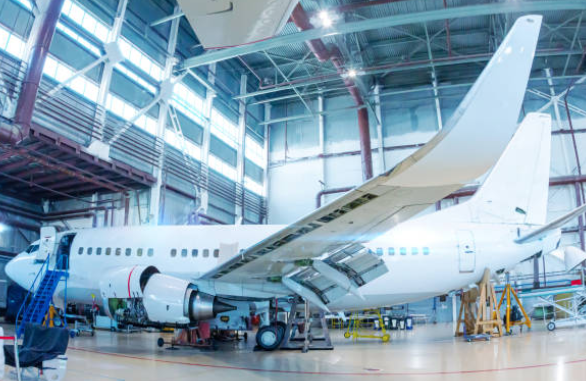
Posted on Friday, October 4, 2024
Roll forming plays a crucial role in the aerospace industry, where the need for lightweight, high-strength components is paramount. From structural parts to frames, the precise and efficient manufacturing capabilities of roll forming machines are perfectly suited to meet the stringent demands of aerospace engineering.
One of the most critical factors in aerospace manufacturing is the need to reduce weight without compromising on strength. Roll forming allows for the production of lightweight metal components that can withstand the extreme forces and pressures experienced during flight. The ability to form thin but robust metal sections, such as wing supports, fuselage components, and frame reinforcements, makes roll forming an ideal technology for aerospace applications.
The aerospace industry relies on materials that can endure heavy loads and extreme conditions. Roll forming machines are capable of working with high-strength metals such as titanium, aluminum, and advanced steel alloys. These materials provide the durability and corrosion resistance needed for critical parts in aircraft, satellites, and spacecraft. Roll forming ensures that these materials are shaped with precision, maintaining their structural integrity throughout the production process.
Aerospace components demand a high level of precision. Roll forming machines are known for their ability to produce consistent, repeatable results, with tight tolerances. This accuracy is essential for ensuring the safety and performance of aerospace parts, where even the smallest deviation can lead to significant issues. Roll forming can produce long, continuous parts with complex cross-sections, making it a preferred method for fabricating structural components like beams, stringers, and stiffeners.
The aerospace industry requires cost-effective manufacturing methods, given the high cost of materials and the need for extensive testing and quality control. Roll forming is highly automated, which reduces labor costs and speeds up production. Additionally, the process generates minimal waste, as materials are efficiently formed into precise shapes without the need for excessive cutting or machining.
Roll forming machines offer the flexibility to create custom profiles and shapes needed for various aerospace components. Whether it's producing aerodynamic exterior panels or internal framework, roll forming can be adapted to meet specific design requirements, ensuring the final products match the performance criteria of aerospace engineers.
Beyond traditional aircraft, roll forming is also increasingly used in the production of parts for space exploration. As the demand for durable yet lightweight materials grows in the space sector, roll forming technology is being applied to create structural parts for satellites, rockets, and space stations, contributing to advancements in space travel and exploration.
In summary, roll forming technology is invaluable to the aerospace industry for producing high-quality, lightweight, and durable components. Its precision, efficiency, and ability to handle advanced materials make it a go-to solution for manufacturing essential parts that help aircraft and spacecraft achieve peak performance.

Used Purlin Roll Forming Machines for Sale Worldwide
Posted on Sunday, January 25, 2026
Pre-Owned Roll Forming Machines for Purlin & Structural Steel Profiles

Used Roof Panel Roll Forming Machines for Sale Worldwide
Posted on Sunday, January 25, 2026
Pre-Owned Roll Forming Machines for Roofing Panel Production

Used Roll Forming Machines for Sale Worldwide
Posted on Tuesday, January 20, 2026
Pre-Owned Roll Forming Machines with Inspection, Verification & Global Support

Steel Coil Supply for Roll Forming Machines Worldwide
Posted on Tuesday, January 20, 2026
Reliable Steel Coil Supply for Roll Forming, Fabrication & Manufacturing Applications
Copyright 2026 © Machine Matcher.